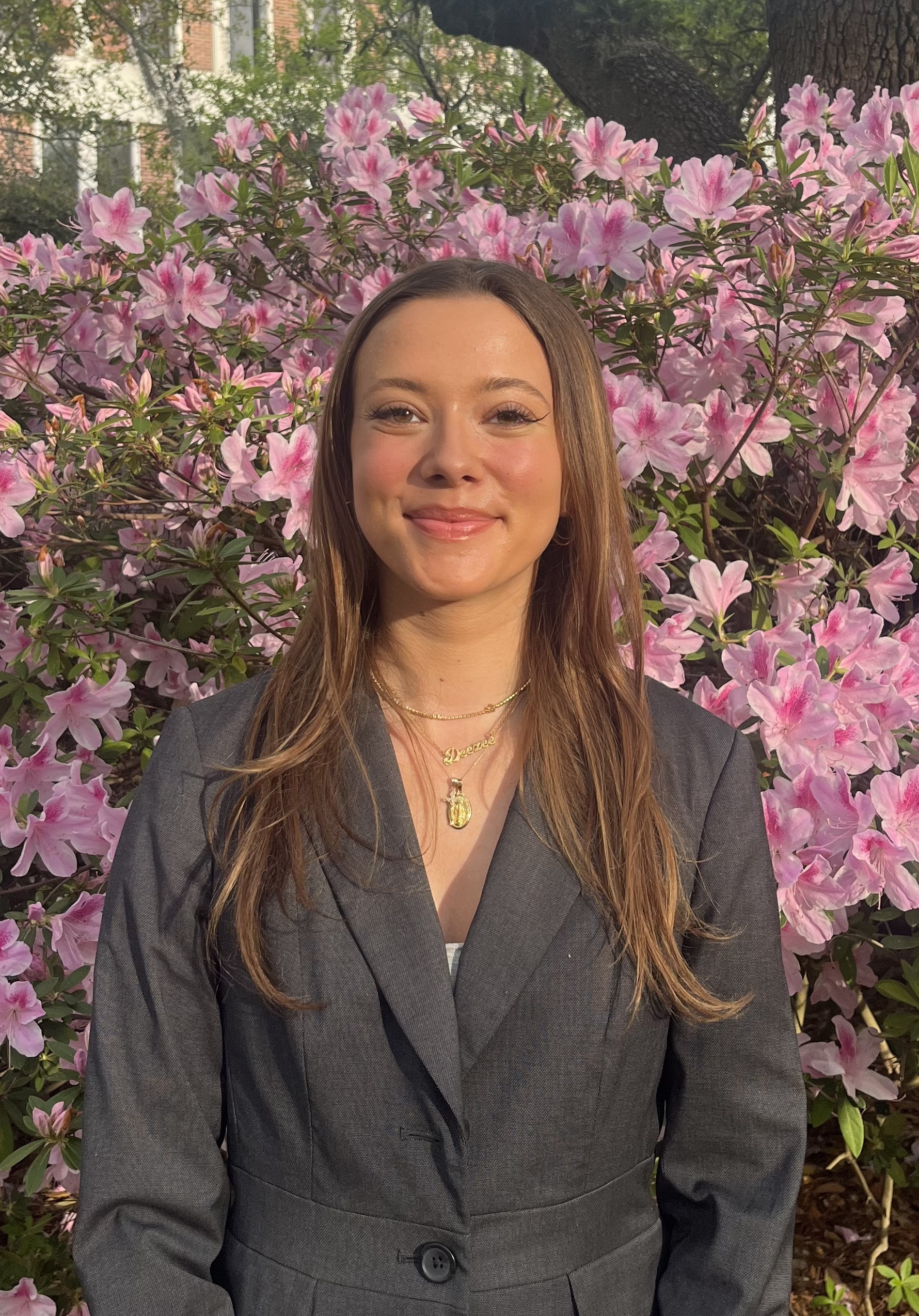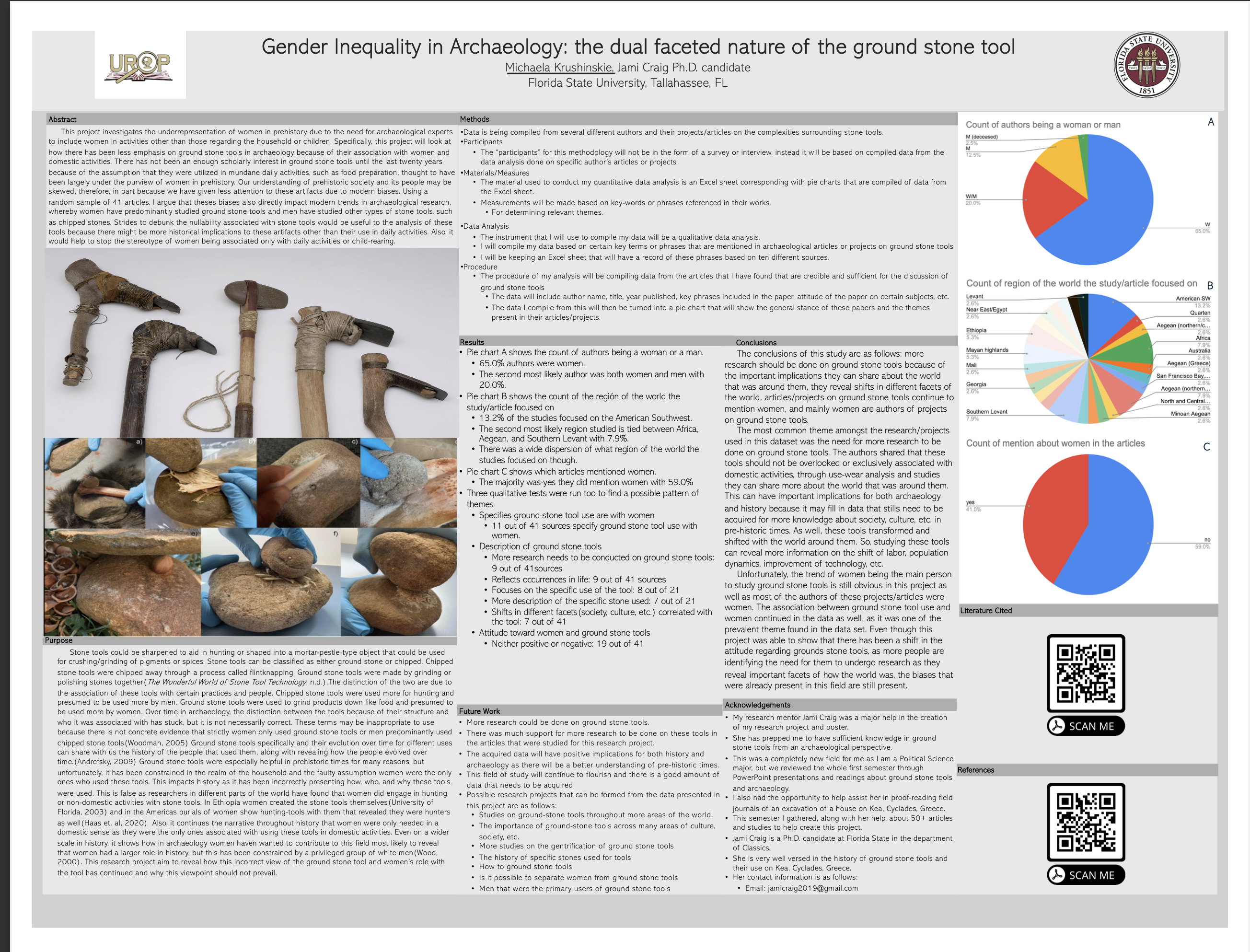Research Symposium
24th annual Undergraduate Research Symposium, April 3, 2024
Michaela Krushinskie Poster Session 2: 10:45 am - 11:45 am/22

BIO
My name is Michaela Krushinskie and I'm from Gainesville, Florida. I am majoring in Political Science with a double minor in Biology and International Affairs. I am interested in any field of research, but specifically I like to research underrepresented topics because I like to find out what causes them to be understudied and the possible important implications they have for their field. I have done research in gender inequality and marketing techniques so far. In my own field, I am interested in working with the District Attorney's office and I hope to specialize in prosecution. I am a member of Phi Alpha Delta at Florida State University as well. Outside of school, I am active in the community through my sorority Delta Zeta, where we work closely with the Florida State Speech and Hearing Clinic, along with raising money for the Starkey Hearing Clinic. I aspire to continue my education in law school after I graduate from Florida State.
Gender Inequality in Archaeology: the dual faceted nature of the ground stone tool
Authors: Michaela Krushinskie, Jami CraigStudent Major: Political Science
Mentor: Jami Craig
Mentor's Department: Classics Mentor's College: Florida State University Co-Presenters:
Abstract
This project investigates the underrepresentation of women in prehistory due to the need for archaeological experts to include women in activities other than those regarding the household or children. Specifically, this project will look at how there has been less emphasis on ground stone tools in archaeology because of their association with women and domestic activities. There has not been an enough scholarly interest in ground stone tools until the last twenty years because of the assumption that they were utilized in mundane daily activities, such as food preparation, thought to have been largely under the purview of women in prehistory. Our understanding of prehistoric society and its people may be skewed, therefore, in part because we have given less attention to these artifacts due to modern biases. Using a random sample of 41 articles, I argue that theses biases also directly impact modern trends in archaeological research, whereby women have predominantly studied ground stone tools and men have studied other types of stone tools, such as chipped stones. Strides to debunk the nullability associated with stone tools would be useful to the analysis of these
tools because there might be more historical implications to these artifacts other than their use in daily activities. Also, it would help to stop the stereotype of women being associated only with daily activities or child-rearing.
Keywords: Archaeology, ground stone tools, women


